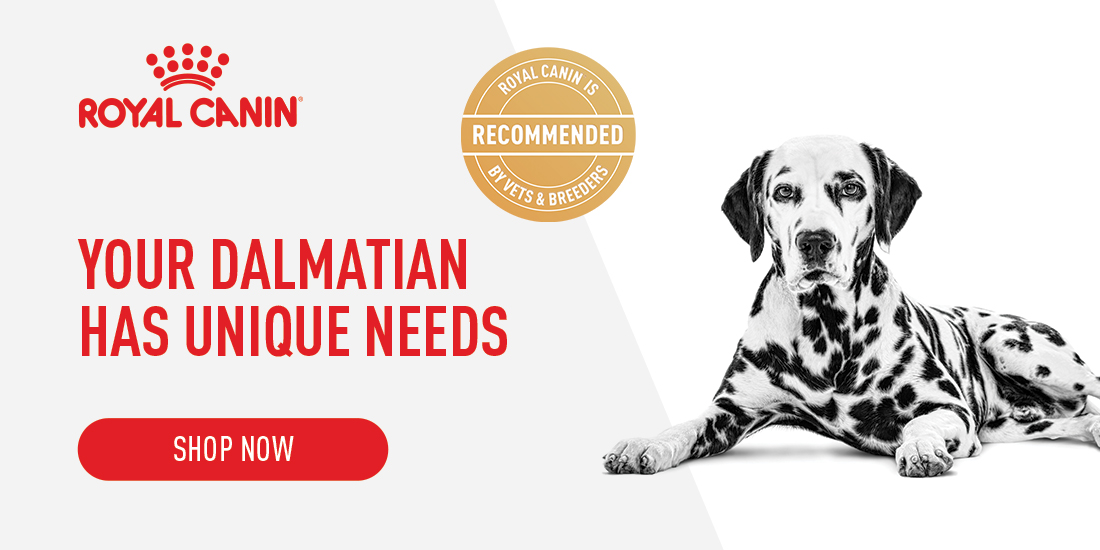Dog Breed
Dalmatian
Freindliness
Exercise Needs
Health Issues
Barking Tendencies
Grooming Needs
Shedding Level
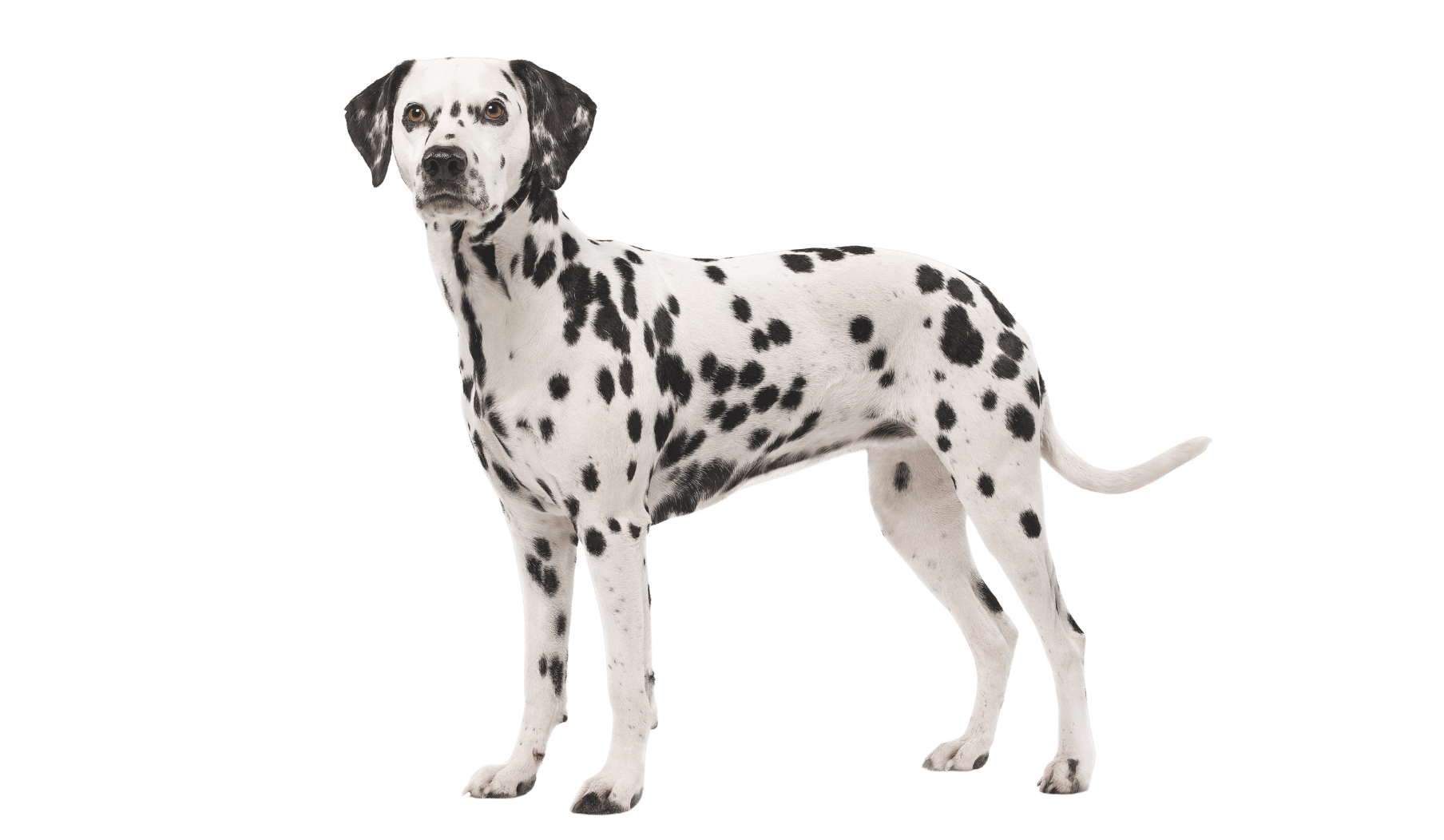

Adventure 101
Dalmatians make brilliant family pets. They’re friendly, outgoing and affectionate, and they’re not known for being aggressive or biters. Instead, Dalmatians will happily spend hours playing with the kids in the garden. We really do mean hours.
Dalmatians are energetic dogs who need a lot of physical and mental stimulation and love being with their families – they crave human companionship, so chucking them into the garden to play by themselves isn’t an option. Instead, prepare to load up the tennis balls and hit the tramping and running tracks together.
Caring for your Dalmatian
Nutrition
Choosing the right food
Every dog is unique. From the small, flat-faced Pug to the obesity-prone Labrador Retriever. ROYAL CANIN® Breed Health Nutrition is tailor-made to address the unique needs of pure breed dogs. These breed specific formulas benefit from the latest ROYAL CANIN® research on the selection of the best protein sources, unique nutrients and tailor-made kibbles.
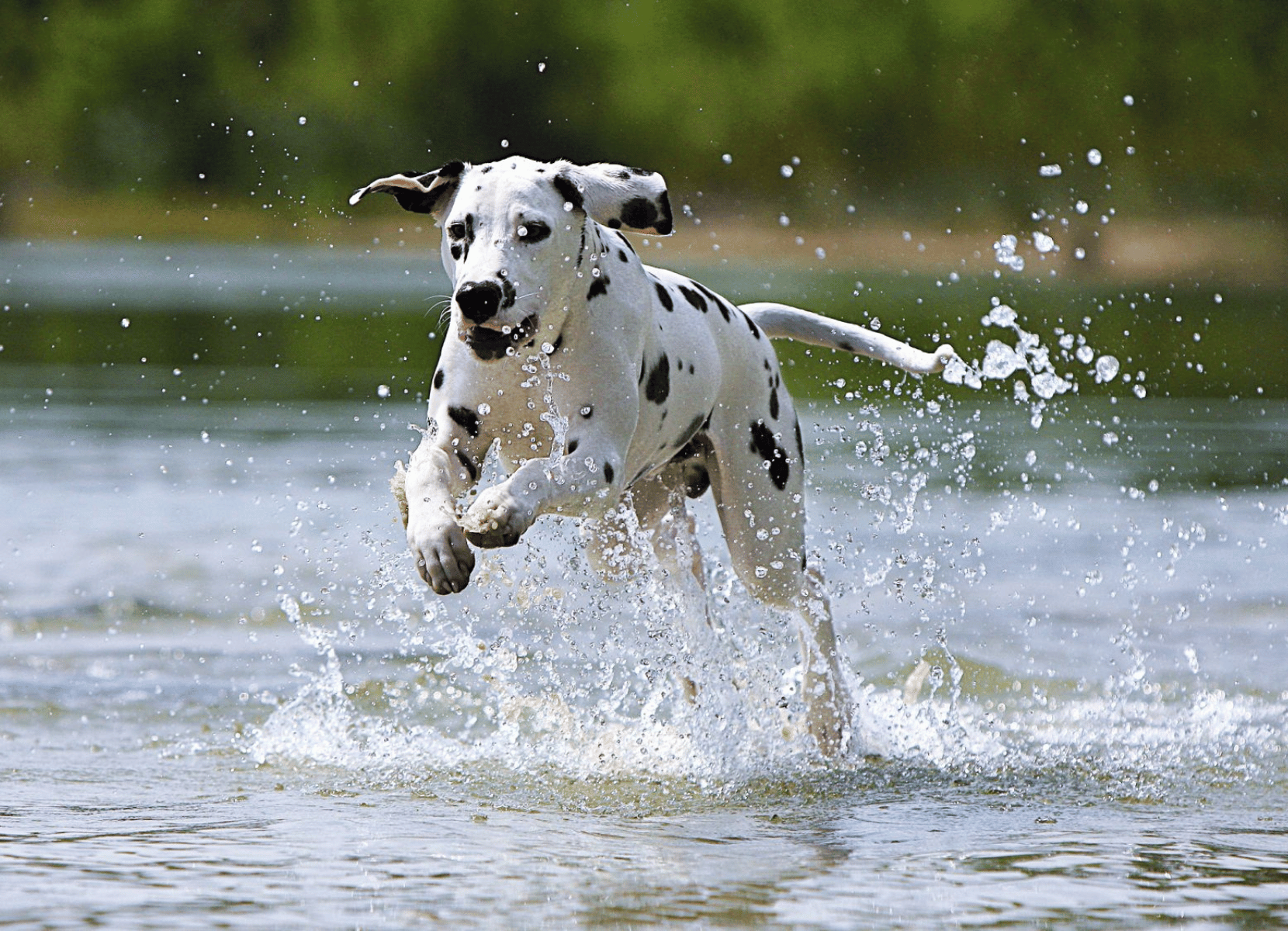
Exercising your dog
With some of the highest energy levels of all dog breeds, Dalmatians need around 2 hours a day of exercise to stay healthy and not bored or destructive.
This can be broken down into 3 or 4 30-minute sessions a day. Mix up your activities: from daily neighbourhood walks to chasing a ball in the garden.
Dalmatians adore playing and can spend hours playing games, including hide and seek or with interactive toys.
All-day hikes or 10km runs might need some training! Oh and a Dalmations bones and joints aren’t fully mature until they’re 2 years old. Avoid strenuously exercising your Dalmatian before this age to avoid hurting them during their important growth period.
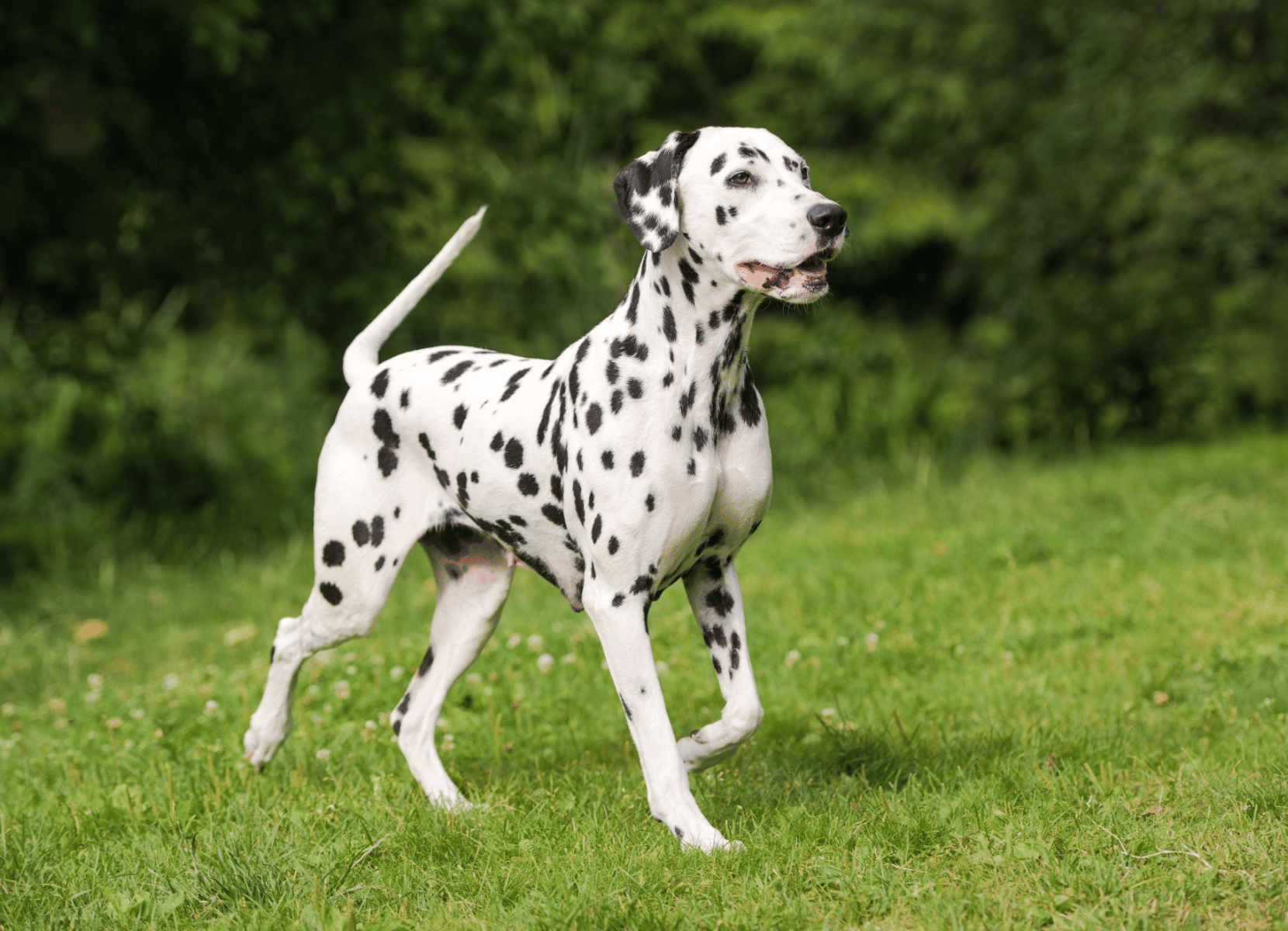
Training your Dalmatian
Outgoing pups, Dalmatians are smart and eager to learn which means training is fairly straightforward.
However, they need consistent obedience training from when they’re a puppy to help them overcome their natural instincts to guard and protect.
Dalmatian parents need to have plenty of time, energy and patience to effectively train their Dalmatian.
Puppy school is a good way for Dalmatians to be exposed to new experiences, environments, people and pups.
Dalmations are sensitive dogs who respond best to positive reinforcement and a calm, firm but loving manner.
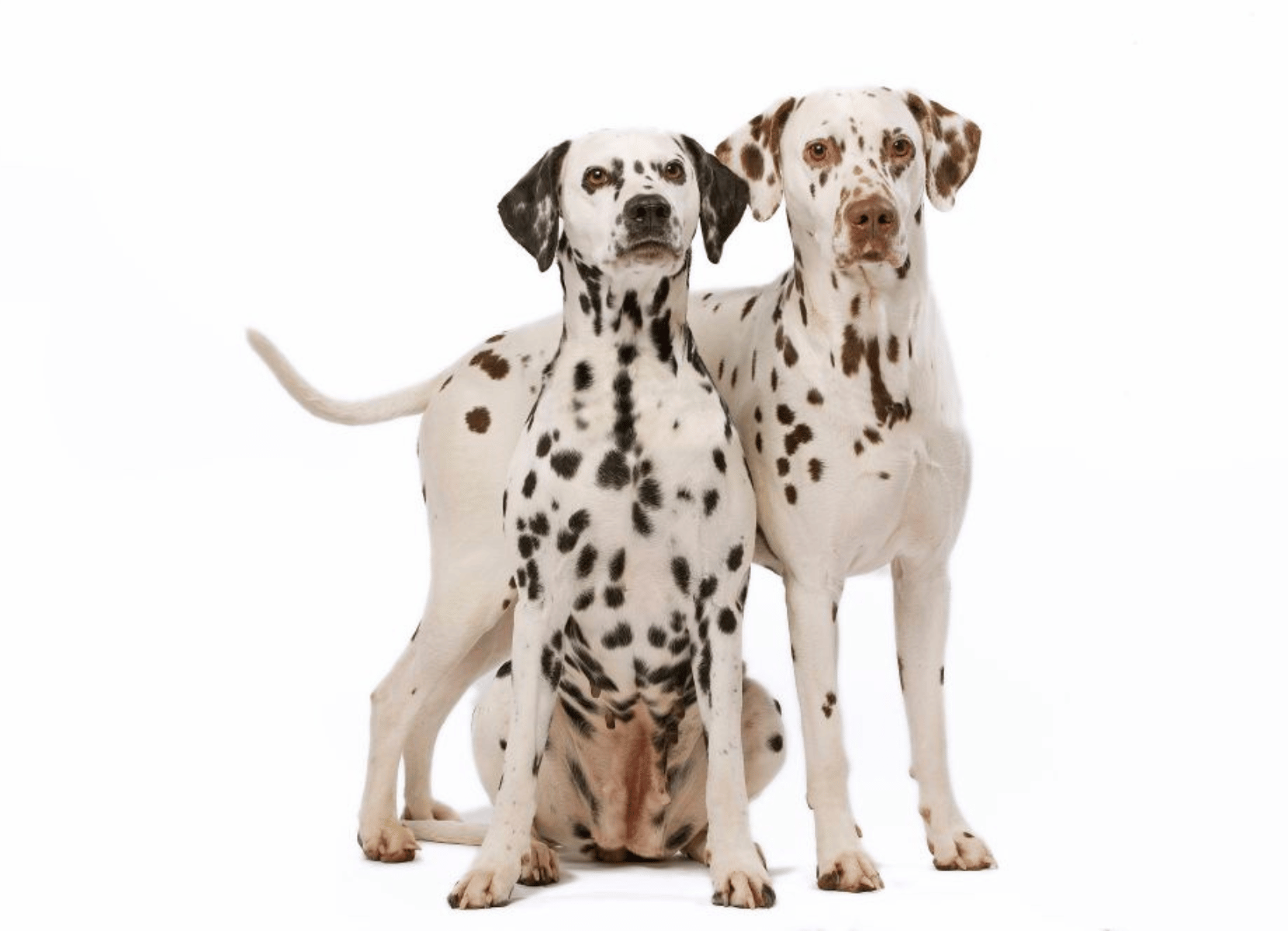
Your dog's health
By recognising health problems in Dalmatians early you can seek advice and treatment from a veterinarian.
Reduce the risk of health problems by purchasing a puppy from a responsible breeder. Always inspect breeding facilities and breeding dogs, and never buy from a distant online seller.
Health Issues to watch out for:
Deafness
Bladder and Kidney Stones
Allergies
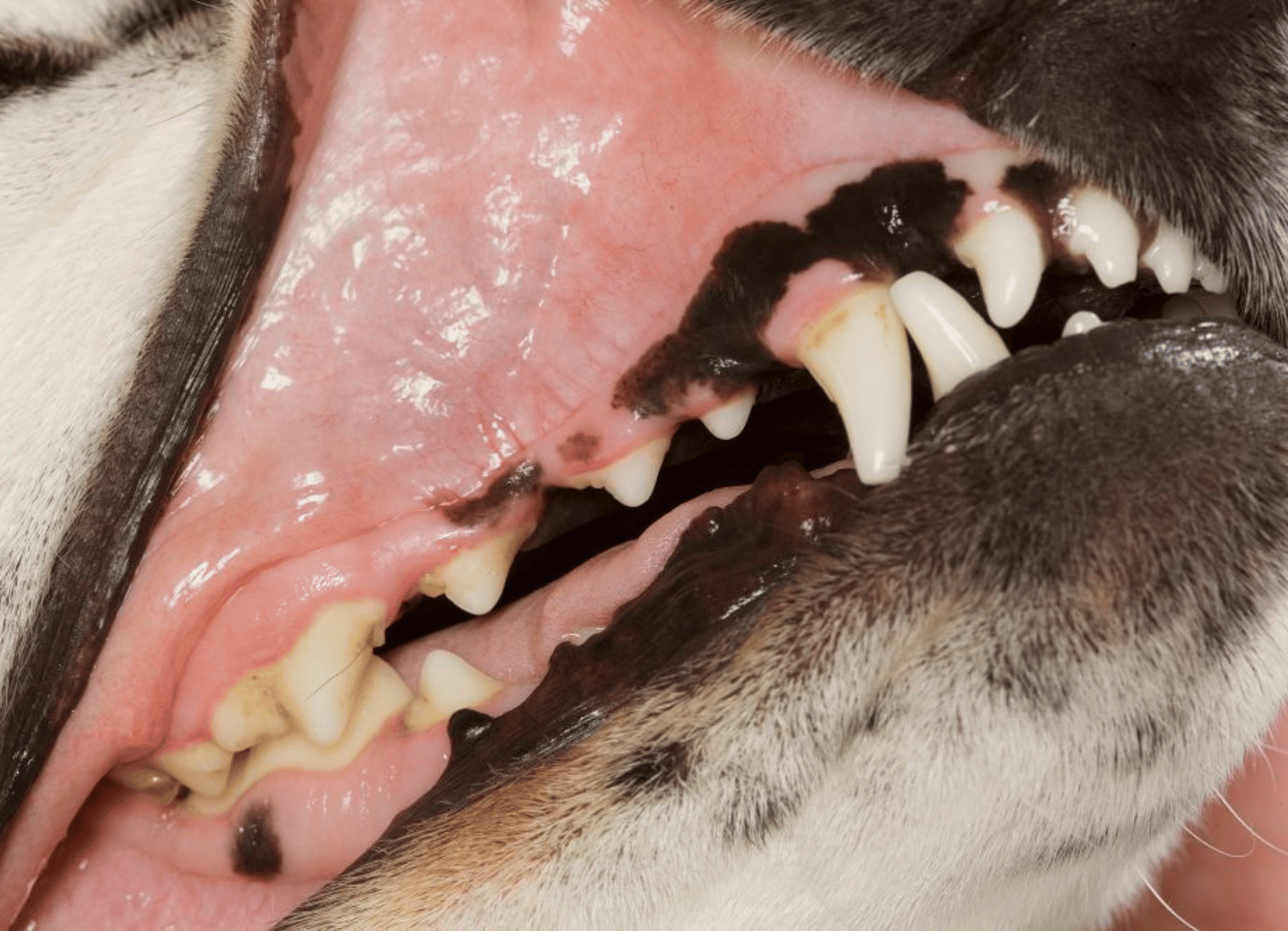
Grooming your dog
A weekly brush (or use a deshedding tool) to get rid of any dead hair is all they need to keep their coat shiny and healthy.
During your weekly grooming sessions is a good time to check a Dalmatian’s ears. Because they’re floppy, they can be breeding grounds for bacteria. Have a quick check for signs of infection. Gently clean their ears to stop dirt and debris building up.
Baths can be done when needed, like when they’re particularly smelly or have played in something disgusting. Aim to clip or trim a Dalmations nails at least monthly. You’ll know when it’s time because you’ll hear them click-clacking on hard surfaces.
The final thing is to brush your pup’s teeth daily.
Key characteristics of Dalmatians
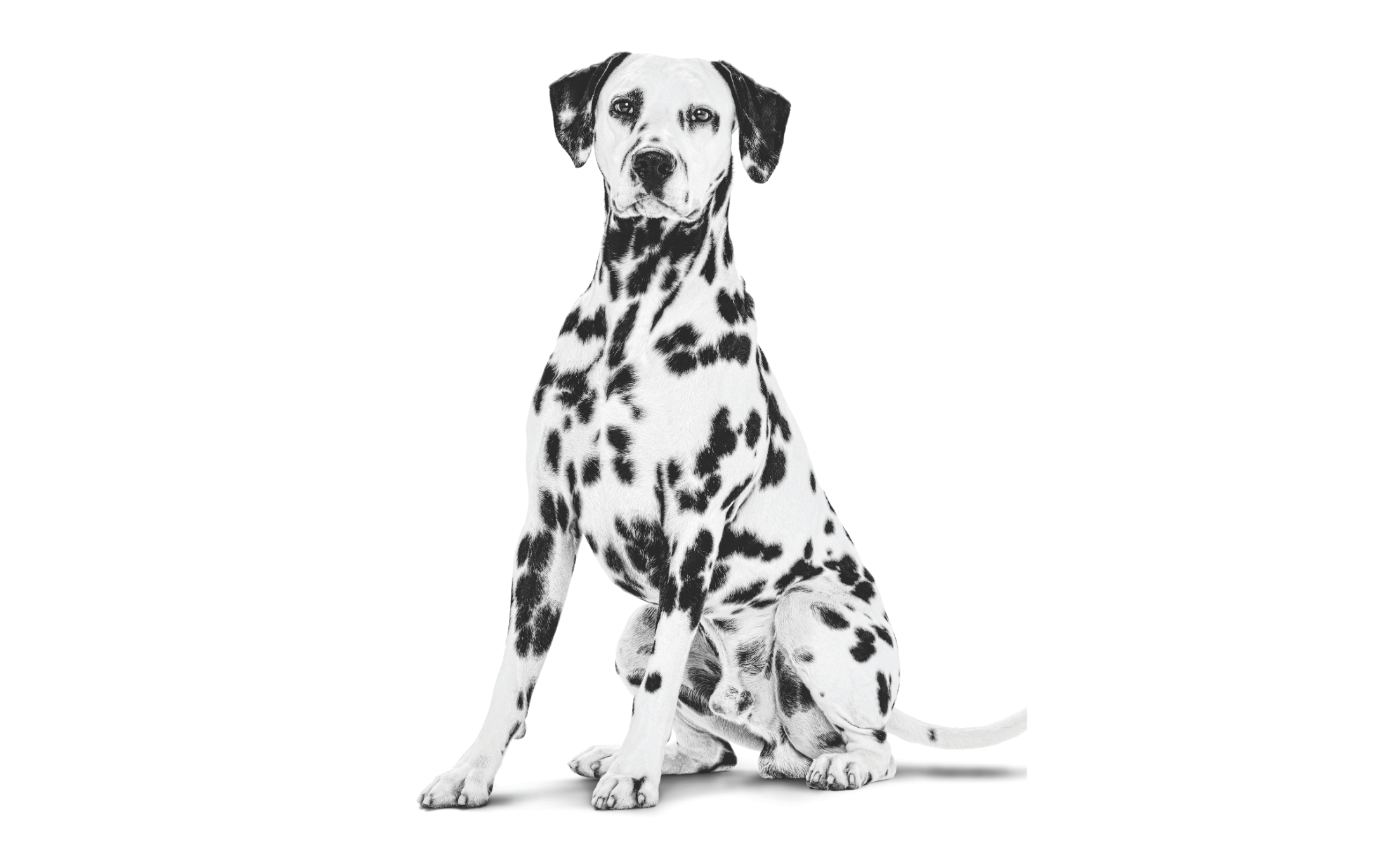
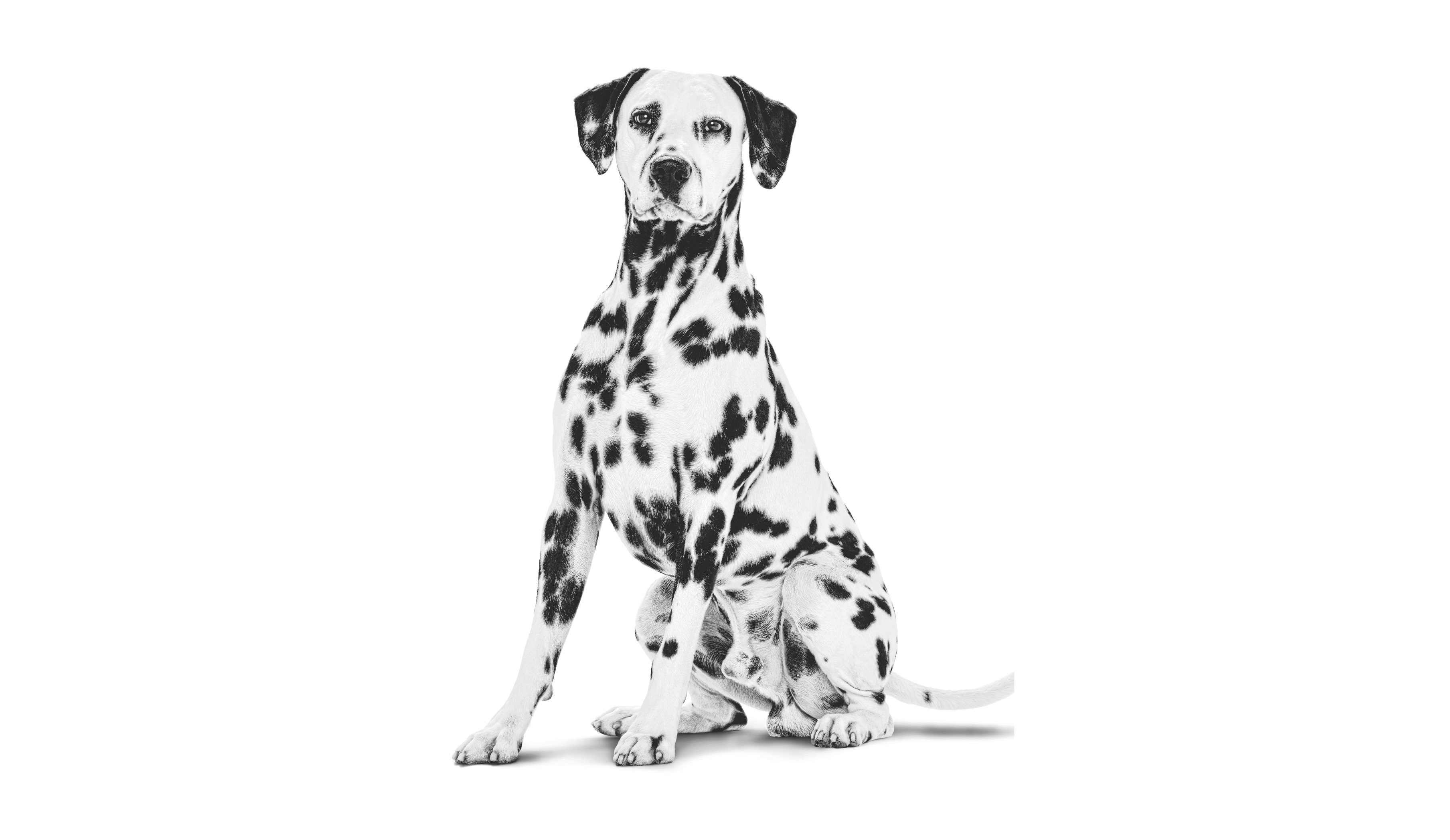
Dalmatian FAQs
Thinking of adding a Dalmatian to your family? You’re not alone. This iconic, high-energy breed captures attention with its spots and wins hearts with its personality. Below are some extra facts and commonly searched questions that can help you decide if this striking breed is the perfect match for your lifestyle.
Are Dalmatians good dogs for first-time owners?
Dalmatians can be a challenge for first-time dog owners due to their high energy, exercise demands, and need for consistent training. They're best suited to experienced dog lovers or active households ready to commit time to daily stimulation, boundaries, and care.
Do Dalmatians get along well with other pets?
Yes, Dalmatians are generally friendly and sociable, especially when raised alongside other pets. Early socialisation is key to ensuring they interact calmly with other dogs and small animals, as they can have a strong prey drive.
How intelligent are Dalmatians?
Dalmatians are highly intelligent and quick learners, but their independent streak means they can be stubborn if training isn’t consistent. They thrive with mental challenges like puzzle toys, scent games, and varied routines.
What are the unique grooming needs of Dalmatians?
Although their coat is short, Dalmatians shed heavily and require weekly brushing with a deshedding tool. Their thin coat also means they may feel the cold more than other breeds, so cosy indoor spaces or dog jackets may be helpful in cooler months.
Yes, Dalmatians form strong bonds with their people and do not do well when left alone for long periods. Without companionship or stimulation, they can become anxious or destructive. Regular interaction and enrichment can help prevent this.
These FAQs explore extra layers of life with a Dalmatian — from their intelligence to their emotional needs. If you're after a loyal, energetic companion who thrives in an active and social home, the Dalmatian could be your perfect match.


